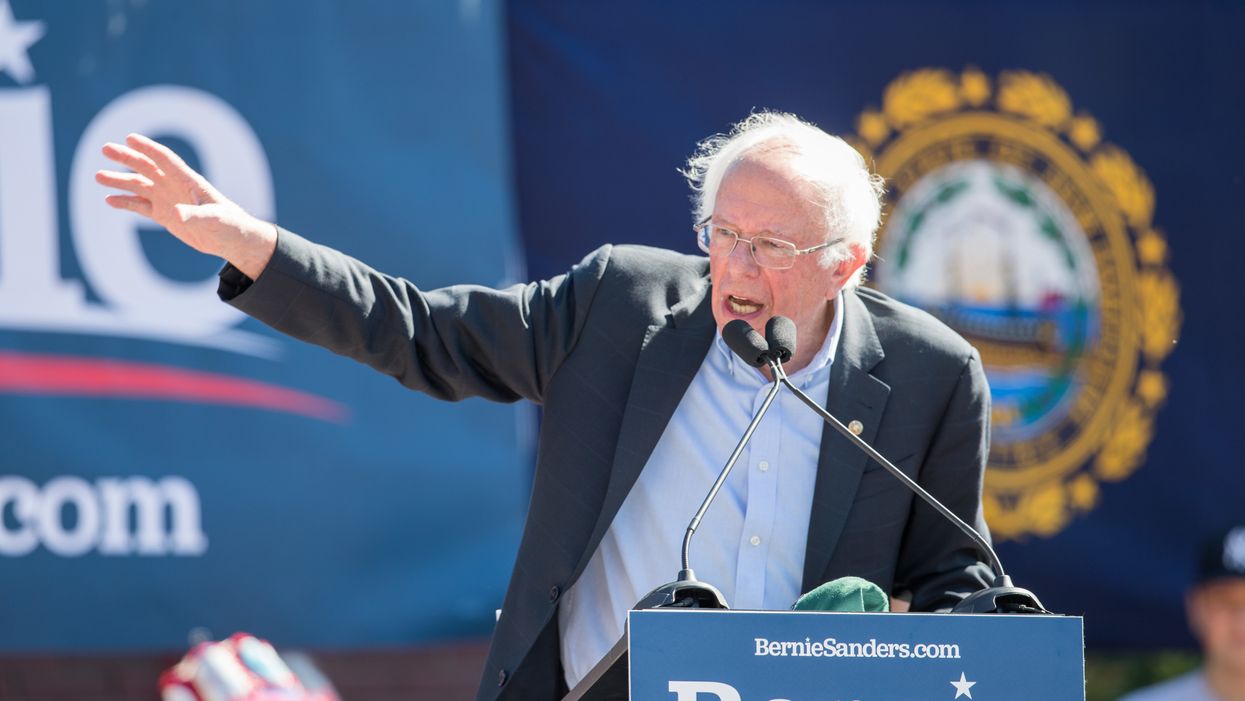Bernie Sanders wants to throw the Federal Election Commission out the window and start fresh with a "true law enforcement agency."
Unveiling the first new plank of his campaign platform since his heart attack last week, the Vermont senator declared Monday that as president, a push to "abolish the worthless FEC" would be central to his plans to root out corruption and corporate influence in politics. Other components of his anti-corruption platform sound somewhat similar to those of his current rivals — although, to be sure, many of them are echoing the populist crusade for the little guy and against big-money corporate interests that drove the Sanders campaign of 2016.
To make sure he positions himself, once again, as the most aggressively populist and left-leaning of the candidates, however, the Sanders' package would have the effect of blowing up not only the Republican Party fundraising approach but also the tactics of many of the other Democratic presidential candidates.
If it were law now, the Sanders' package would also crimp his own fundraising success. He hauled in $25.3 million in the third quarter, more than any other Democratic candidate has raised in any three-month stretch.
If Sanders becomes the Democratic nominee next summer, he vows to ban corporate contributions to the Democratic National Convention and other related committees. If elected president, he would also bar corporate donations at inaugural events and put a $500 cap on individual donations.
Other 2020 Democratic presidential candidates have proposed renovations to the FEC, in hopes of improving its functionality, but Sanders is the first to suggest an all-out demolition and reconstruction. Throughout the FEC's 45-year history, it has often been deadlocked by partisanship. Its latest impediment, though, is that it has only three sitting commissioners since the end of August and four are required to do almost anything of substance.
Sanders' proposal would close the agency and instead establish the Federal Election Administration to hear violations of campaign finance law and impose both civil and criminal penalties for such infractions.
Additional proposals
- A constitutional amendment to nullify the two landmark Supreme Court rulings in the era of campaign finance deregulation: Buckley v. Valeo, which declared in 1976 that candidate spending limits were unconstitutional limits on free speech; and Citizens United v. FEC, which held in 2010 that corporations, nonprofit organizations and labor unions could spend on campaigns without limits.
- Weeding out corporate influence at the DNC by rejecting donations from lobbyists or corporations and imposing a lifetime lobbying ban on national party chairs and co-chairs
- Create public financing for all federal elections by instituting a new system where eligible voters would receive taxpayer-funded vouchers for donating to their favorite presidential and congressional candidates.




















